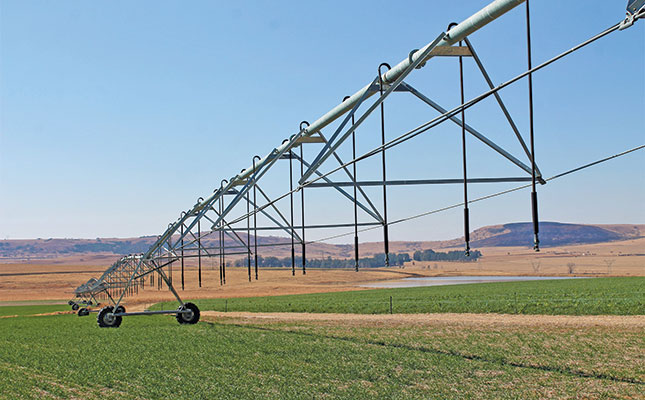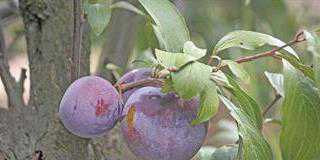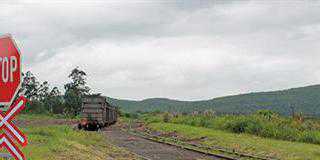A thriving new agroprocessing business in Hluhluwe is set to become an important player in the local pineapple industry. Brothers James and Brett Domleo, who farm 25ha Queen pineapples, opened a drying facility on the outskirts of Hluhluwe three years ago. The business has grown from strength to strength, and now the partners are ready to scale up the operation and help buoy prices by mopping surplus pineapples off the market.
“We started the business to extend the shelf life of our fruit,” recalls James. “One of the biggest drawbacks of the pineapple is that it has no shelf life, which is especially problematic when exporting. Shelf life is three to four weeks, but it takes just under three weeks to ship the fruit to the EU. That doesn’t leave much time to get the fruit onto the shelves.”
Pioneers in Queen pineapple drying
Drying the fruit can extend the shelf life by as much as a year. Novapine, the Domleos’ agroprocessing business, purchases sweet Queen pineapples from local farmers daily. It takes an all-female staff of 100 people to prepare the fruit, hand-cutting and drying about 120 000 slices each day. The fruit is dried for 21 hours in a large electric oven at about 50ºC.
Pineapples shrink considerably during the drying process – 25kg wet pineapple produces 1kg dried pineapple. The dried fruit is sold either as rings or chunks, some of which is marketed by Bokomo Foods under their SAD dried fruit range. “As far as we know, we are the only people drying Queen pineapples in the world,” says James.
“The Queen pineapple has a unique, sweet flavour. Most of our sales come from people who tasted the raw fruit first. But once local retailers put on their mark-up, it’s too expensive for the local market. That’s why 99% of our product is exported.”Novapine products are popular in Switzerland, England, Italy, the Netherlands and Turkey and have just entered the Australian market.
Although a pineapple is a very hardy plant requiring only 400ml/year of rain, the prolonged drought has caused a bigger harvest of small fruit, too small for the local market. And while there are markets in the EU and Dubai, exports last year dropped an alarming 50%, to 520 000 x 4kg cartons. However, Novapine actually prefers the smaller pines, as there is less wastage. “If we take the smaller pines off the market, it will create more demand for bigger pineapples at a better price,” says James. Aside from undersized fruit, Novapine also accepts green, oversized, or damaged fruit.
This makes the agroprocessing market important for farmers, because in times of oversupply or poor quality, Novapine mops surplus or unmarketable fruit from the market.James estimates they take about 5% to 10% of the local crop, processing 250t to 300t wet pineapples a month into 10t to 12t dried pineapple. This is up substantially from the 2t/month produced three years ago.
Production challenges of the area
“The strong rand is really killing us. We haven’t been able to raise our price since we started three years ago, and we have seen big increases in labour and electricity costs,” says James. “Yet it is a fortuitous time for an agroprocessing facility in Hluhluwe. The demand is there and we could probably double production. The limiting factor is the supply of pines in the area. As soon as the market price is good, the farmers send their pineapples to the market.
But when it drops, they send them to us. It’s not good for production as we’re dealing with overseas clients who expect consistent supply. To stabilise the business, we have to plant more pineapples as a buffer.”Of further concern is the dwindling number of Queen pineapple farmers in Hluhluwe. The farmers in the region have dwindled from almost 100 to only 12 in 20 years.
Despite this, production hasn’t declined yet. Escalating input costs and lower sales volumes meant that 2009 was a break-even year for farmers.While the supply of fresh pines is one of the constraining factors of the business, Eskom is the other. “We would like to expand and put in another drier. We are talking about a R9 million investment to create 150 jobs in one of the poorest municipal districts in South Africa. But Eskom can’t supply us with the energy.”
Eliminating waste
In times of surplus, when Novapine’s capacity is stretched to the limit, fruit is sent to Natondry, a mango-drying facility in Hectorspruit, Mpumalanga.Buying pineapples is Novapine’s biggest expense, accounting for about 40% of total costs. Electricity and labour represent another 30%. The high cost of electricity and the lack of capacity to expand has spurred the Domleos to investigate the feasibility of a biodigester. “We are throwing away 65% of the pineapple. We want to put this into a biodigester to produce methane to power the ovens,” James says.
The brothers are also investigating other opportunities, including using the pulp from very small pineapples to produce juice for a ready local market, and supplying pineapple stumps to a laboratory to extract the bromelian enzyme. “Bromelian breaks down protein and is traditionally used in dieting pills ,” says James. It’s now also being researched as a digestive aid.“We don’t want any part of the pineapple to go to waste,” he laughs. “A friend recently said that by the time we’re finished, the pineapple should be very afraid. And he’s right!”
Contact Novapine on 035 562 0024 or e-mail [email protected].













